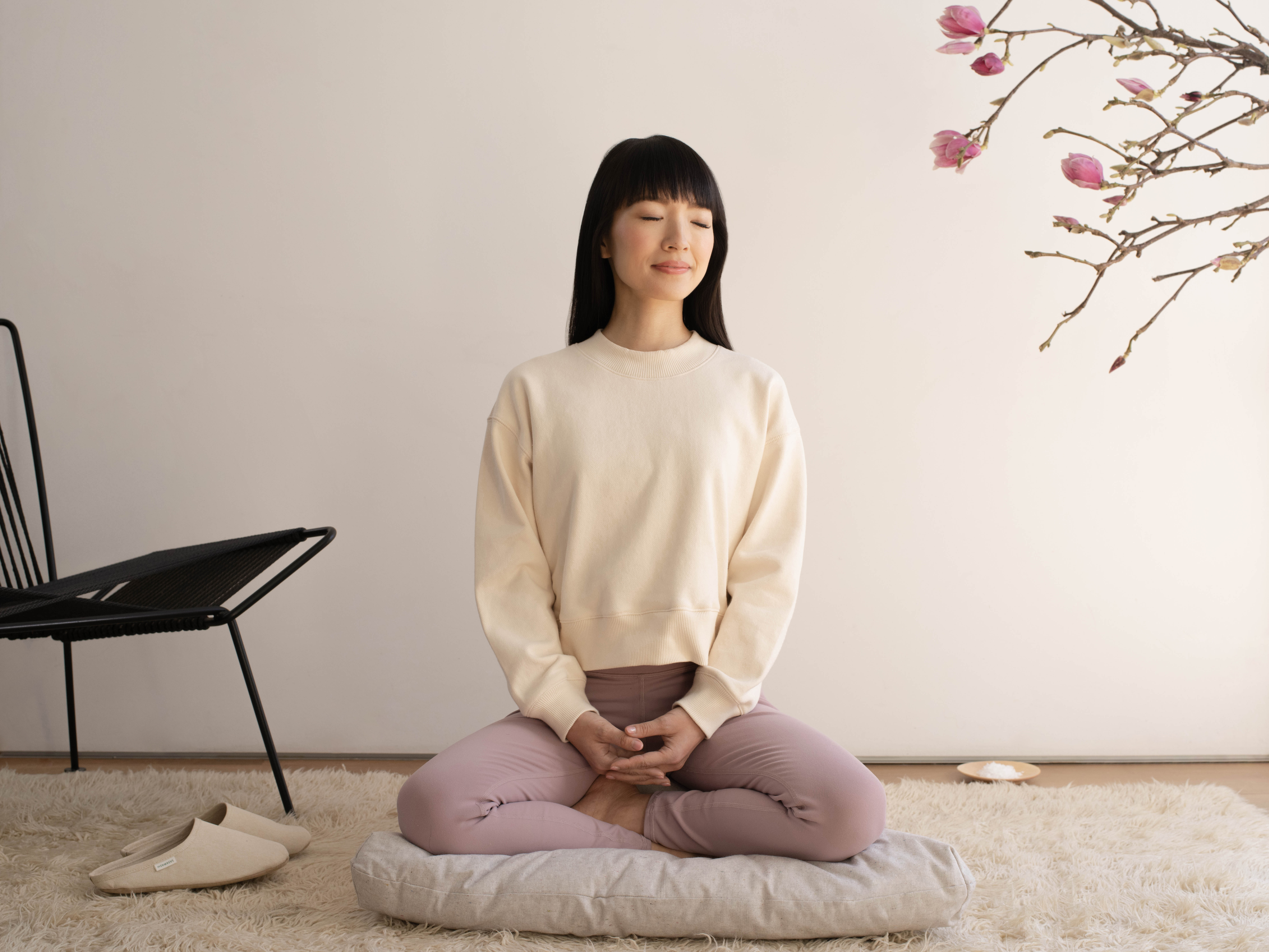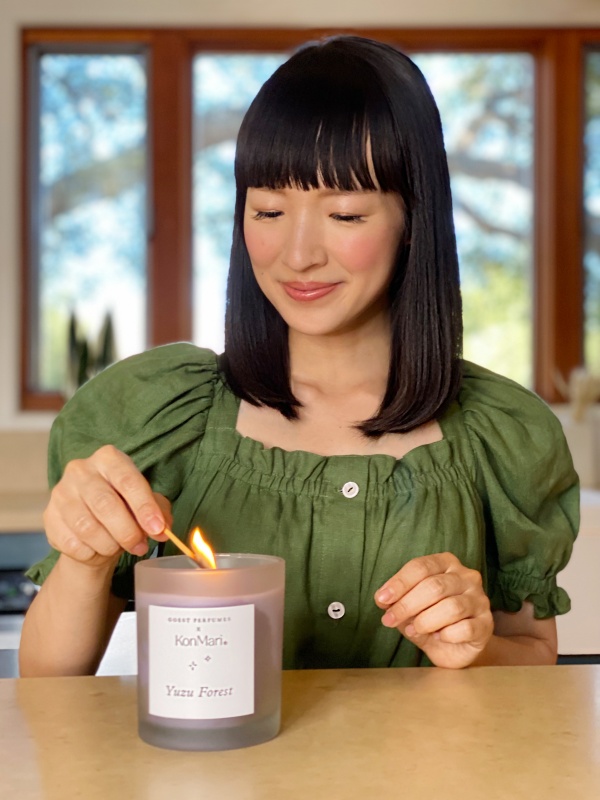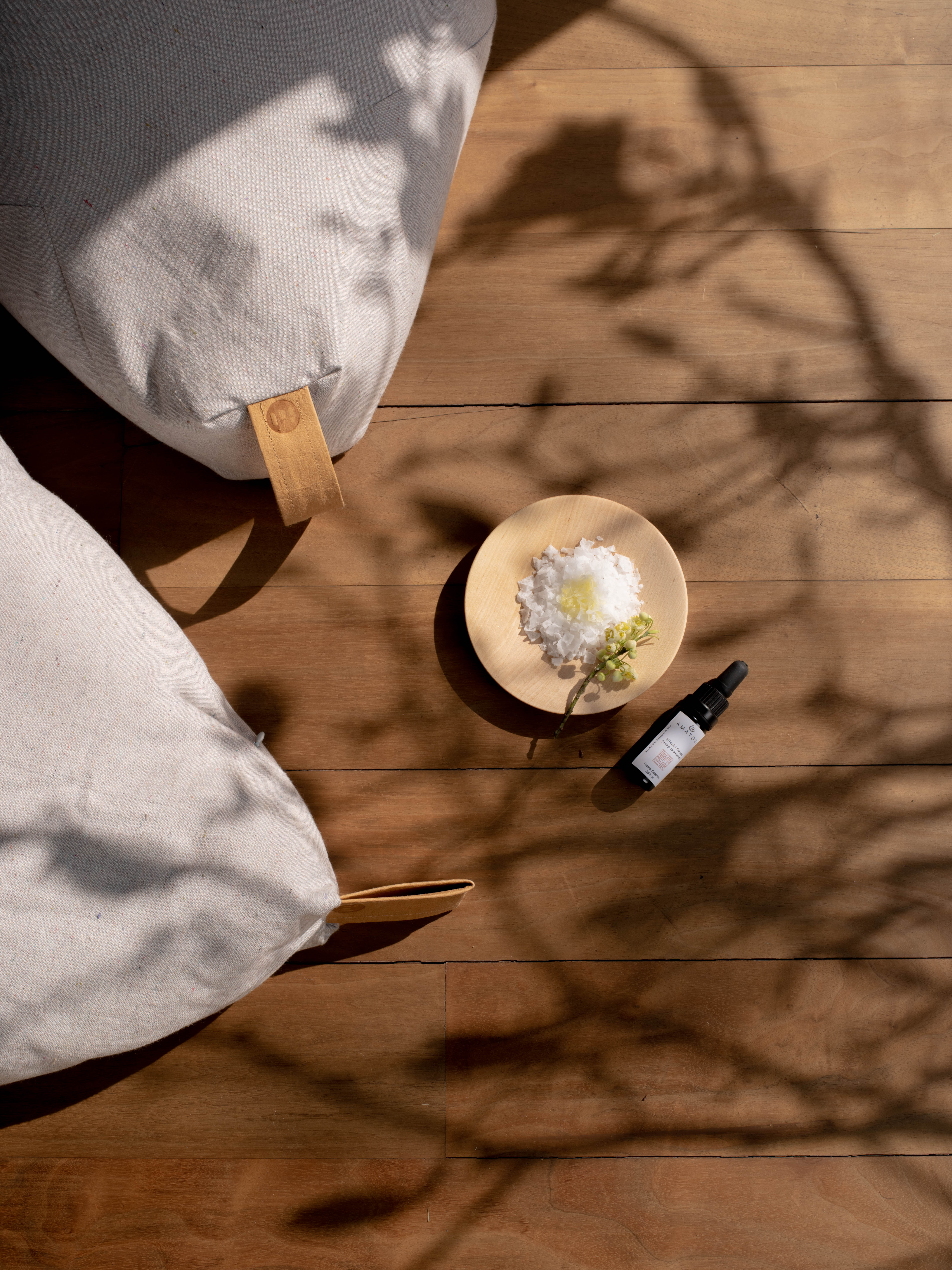How to Start Meditating
When You Have No Idea Where to Start


A regular meditation habit has long played a part in bringing balance to my life, along with other simple self-care rituals that benefit my daily routine.
This doesn’t mean I’m enjoying a full bath or hour-long skincare ritual each day. With three kids, self-care can look different every day. I’m learning to accept that taking care of myself is not about doing it all. Rather, it’s about doing what I can each day.
Thankfully, because meditation comes in so many forms, it’s one of the self-care rituals I’ve been able to maintain over the last few years. Some days, I only have a few minutes to practice, and I’m learning that can be enough. Meditation has helped me explore and embrace countless changes to my ideal lifestyle.
If you have often considered starting a meditation habit but have felt too intimidated, or if you’ve started over and over again, I relate! That’s why we’ve invited a handful of mindfulness experts to share their simplest advice for getting started.
– Marie
Start Small
Even a minute of mindfulness can change how you experience the rest of your day. The key is committing to that time.
“Start with just five minutes a day and work your way up to more,” says Dr. Amy Robbins, a Licensed Clinical Psychologist and BIÂN Chicago‘s Director of Mental Health. “If once a day sounds like too much, then start with a few times a week. Each day, you can tack on another minute. It is all about setting yourself up for success.”
Stay Present with Your Goals
Dr. Jenelle Kim, author of Myung Sung: The Korean Art of Living Meditation, also advises that you keep your goals or resolutions firmly rooted in today.
“I am a firm believer in setting your mind in small increments. Instead of saying, ‘From now on, I am going to incorporate meditation into my daily regimen, and I am not going to…,’ make the timeframe smaller,” she says, “Tomorrow morning, I am going to wake up 15 minutes earlier than usual to meditate [first thing]. I am not going to wake up and immediately look at my phone.”
Create a Meditation Space
“When starting a meditation routine, I recommend setting aside a special space that is for you,” says Dr. Robbins, “It tells your body and mind that this is sacred time.”
She also recommends filling that space with items that spark joy. “It can be nice to find a few things that bring you peace to keep in that space. Some people like to include a candle, something they collected on a trip that was meaningful or a picture that brings them calm and peace. Setting the stage is important. “

Regularly Check Your Progress
“[Once you decide] that you’re going to give meditation a try, commit to doing it daily for one week,” says Dragana Ognenovska, a meditation coach who teaches workshops in Beverly Hills, West Hollywood and online. “After the week, check in with how you feel. How do you feel during the day? Do you see any benefits? If you feel a difference — which you will — commit to another week.”
Easy Does It
How many times have you started a New Year’s resolution at full speed and lost momentum by February? Our experts recommend that you take it slow to avoid burning out.
“Start meditating at home on your own, and then invest in a [premium] app, drop-in guided meditations, or a full course. I’ve done all of that, but initially, I started with a few youtube videos,” says Ognenovska.
Experiment to Find Your Meditation Style
When beginners think of meditation, they tend to think of a person sitting in silence for hours — no wonder the thought of starting to meditate is daunting! Maybe someday, this form of meditation will play a role in your life (and your kurashi), but today may not be that day.
“Meditations should be peaceful, not painful,” says Dr. Robbins. “You can do a walking meditation or even a mindful eating meditation. If you are someone who feels like they could never sit still enough, either of these options are a great place to start.”
For a more formal practice, Dr. Robbins recommends using a meditation app to help guide you (she likes this one). “Apps are great because you can shop around the meditations and find ones that are right for you, she says, “ If you start one and it doesn’t resonate, turn it off and start another one.”

Accept That Thoughts and Feelings Will Come Up
The point of meditation is not to stop thinking or feeling, but rather, to come to accept those thoughts and feelings without allowing yourself to get swept away.
“While meditating, there may be some intense feelings that come up that have been repressed,” says Dr. Robbins. “Sometimes, when our mind is on overdrive, it prevents us from being in touch with what we are actually feeling. Just allow the feeling to come to the surface. You don’t have to do anything but acknowledge it.”
Practice Patience.
“Remember that there was a time when you had to learn how to walk, but now it is not something that you have to think about every step of the way (no pun intended…),” says Dr. Kim. “The same thing occurs with any new habit. At first, it may take a lot of self-discipline and self-control to remain consistent, but if you take one step at a time and feel the benefits of your meditation practice, you will build a lasting habit.”
Consider the Big Picture
One of the best ways to stay motivated with your goals is to firmly connect them to your values. Consider then, how meditation can give you a more profound connection to your life and world.
“All things in nature and our surroundings share a connection. Some call this an energy, others a life force, I like to simply call it ‘connectedness,’” says Dr. Kim. “[Through meditation practice,] we start learning more about ourselves, our relationships, and our effect on the world around us.”
Dr. Kim practices Living Meditation, a philosophy rooted in Tao, that closely aligns with what Marie refers to as kurashi. “By becoming more aware and pushing ourselves to always broaden our perspective, to see ourselves and our situations more clearly in every circumstance we are in, we will begin to feel a greater sense of balance between our mind, body, and spirit. In turn, we gain the ability to handle the challenges of life with more clarity, calm and balance.”







